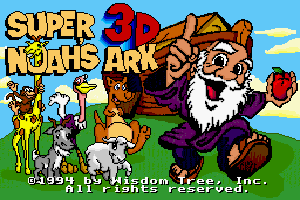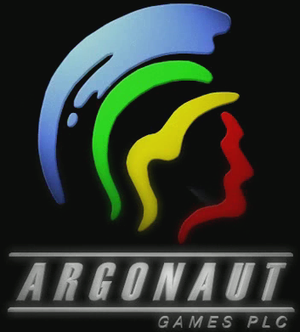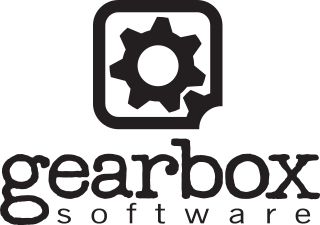Related Research Articles

Raven Software Corporation is an American video game developer based in Middleton, Wisconsin, and part of Activision. Founded in May 1990 by brothers Brian and Steve Raffel, the company is most known for the dark fantasy franchise Heretic/Hexen, the first two Soldier of Fortune games, as well as licensed titles based in the Star Wars: Jedi Knight series and Marvel Comics's X-Men characters, including 2006's Marvel: Ultimate Alliance. Since 2011, Raven has been working on multiple Call of Duty games as both lead and support developer.

The 3DO Company was an American video game company based in Redwood City, California. It was founded in 1991 by Electronic Arts founder Trip Hawkins in a partnership with seven other companies to develop the 3DO standard of video gaming hardware. When 3DO failed in the marketplace, the company exited the hardware business and became a third-party video game developer and published well-known games series like Army Men, Battletanx, High Heat Major League Baseball and Might and Magic. It went bankrupt in 2003 due to poor sales of its games.

Ritual Entertainment was an American video game developer established in 1996 by Robert Atkins, Mark Dochtermann, Jim Dosé, Richard 'Levelord' Gray, Michael Hadwin, Harry Miller, and Tom Mustaine. Based in Dallas, Texas, Ritual Entertainment was formerly known as Hipnotic Interactive, during which period they began development of their signature video game SiN.
Sierra Entertainment, Inc. was an American video game developer and publisher founded in 1979 by Ken and Roberta Williams. The company is known for pioneering the graphic adventure game genre, including the first such game, Mystery House. It is known for its graphical adventure game series King's Quest, Space Quest, Police Quest, Gabriel Knight, Leisure Suit Larry, and Quest for Glory, and as the original publisher of Valve's Half-Life series.

MicroProse is an American video game publisher and developer founded by Bill Stealey, Sid Meier, and Andy Hollis in 1982. It developed and published numerous games, including starting the Civilization and X-COM series. Most of their internally developed titles were vehicle simulation and strategy games.

Rockstar North is a British video game developer and a studio of Rockstar Games based in Edinburgh. The studio is best known for creating the Lemmings and Grand Theft Auto series, including Grand Theft Auto V, the second-best-selling game and most profitable entertainment product of all time.

Super 3D Noah's Ark is a non-violent Christian first-person shooter developed and published by Wisdom Tree for the Super Nintendo Entertainment System (SNES) in 1994 and MS-DOS in 1995. Its gameplay is similar to that of Wolfenstein 3D, as Wisdom Tree had licensed that game's engine from id Software. Wisdom Tree opted not to secure a license from Nintendo for the game's SNES release. While not illegal, it prevented the game from being sold at most video game retailers, which were under a contractual agreement with Nintendo not to sell unlicensed games for the company's consoles. As a result, the SNES release of Super 3D Noah's Ark was sold primarily via Christian bookstores.

Mindscape was a video game developer and publisher. The company was founded by Roger Buoy in October 1983 in Northbrook, Illinois, originally as part of SFN Companies until a management buyout was completed in 1987. Mindscape went public in 1988 and was acquired in 1990 by The Software Toolworks, eyeing Mindscape's Nintendo license. When Toolworks was acquired by Pearson plc in 1994, Mindscape became the primary identity for the development group. Mindscape was then sold to The Learning Company in 1998 and bought out by Jean-Pierre Nordman in 2001, becoming headquartered in Boulogne-Billancourt, France. Following the poor performance of its products, Mindscape exited the video game industry in August 2011 and soon ceased operations after filing for liquidation. However, its Dutch and Australian-based subsidiaries, Mindscape B.V. and Mindscape Asia Pacific Pty, Ltd., continue to operate as independent publishers and distributors.

Adobe Shockwave is a discontinued multimedia platform for building interactive multimedia applications and video games. Developers originate content using Adobe Director and publish it on the Internet. Such content could be viewed in a web browser on any computer with the Shockwave Player plug-in installed. MacroMind originated the technology; Macromedia acquired MacroMind and developed it further, releasing Shockwave Player in 1995. Adobe then acquired Shockwave with Macromedia in 2005. Shockwave supports raster graphics, basic vector graphics, 3D graphics, audio, and an embedded scripting language called Lingo.

Argonaut Games is a British video game developer founded in 1982. It was known for the Super NES video game Star Fox and its supporting Super FX chip, and for Croc: Legend of the Gobbos and the Starglider series. The company was liquidated in late 2004, and ceased to exist in early 2007. It was relaunched in 2024.

Gearbox Software, L.L.C is an American video game development company based in Frisco, Texas. It was established as a limited liability company in February 1999 by five developers formerly of Rebel Boat Rocker. Randy Pitchford, one of the founders, serves as president and chief executive officer. Gearbox initially created expansions for the Valve game Half-Life, then ported that game and others to console platforms. In 2005, Gearbox launched its first independent set of games, Brothers in Arms, on console and mobile devices. It became their flagship franchise and spun off a comic book series, television documentary, books, and action figures. Their second original game series, Borderlands, commenced in 2009, and by 2015 had sold over 26 million copies. The company also owns the intellectual property of Duke Nukem and Homeworld.
SingleTrac Entertainment Technologies, Inc. was an American video game developer. It was formed by was founded in 1994 by Michael Ryder, Todd Kelly, and Michael Bartholomew, who were former employees of Evans & Sutherland, bringing their 3D graphics and software engineering skills into the video game industry. Its most famous titles were the Twisted Metal and Jet Moto video game series. At its heyday it was closely associated with Sony Computer Entertainment, with whom they produced the above two series.
Engineering Animation, Inc., or EAI, was a services and software company based in Ames, Iowa, United States. It remained headquartered there from its incorporation in 1990 until it was acquired in 2000 by Unigraphics Solutions, Inc., now a subsidiary of the German technology multinational Siemens AG. During its existence, EAI produced animations to support litigants in court, wrote and sold animation and visualization software, and developed a number of multimedia medical and computer game titles. Part of EAI's business now exists in a spin-off company, Demonstratives.

Rockstar Vienna was an Austrian video game developer and a studio of Rockstar Games based in Vienna. Peter Baustädter, Niki Laber, and Hannes Seifert founded the studio as Neo Software in January 1993 as they neared the completion of Whale's Voyage. The game led Neo Software to early success, as did 1994's The Clue!, which sold over a million copies, and enabled the company to relocate from Seifert's house in Hirtenberg to offices in Vienna. After Neo Software's Alien Nations sold more than a million copies in 1999, Computec Media acquired a majority stake in the company, seeking it to produce online games. It then sold the studio and several other businesses to Gameplay.com in February 2000, which sold Neo Software to Take-Two Interactive in January 2001 as part of a subsidiary exchange.

Behaviour Interactive Inc. is a Canadian video game developer and publisher based in Montreal. The studio is best known for the multiplayer horror game Dead by Daylight.
Atari, Inc. is an American video gaming company based in New York City, and a subsidiary of the Atari SA holding company. It is the main entity serving the commercial Atari brand globally since 2003. The company currently publishes games based on retro Atari franchises as well as some new content, and also produces the new Atari 2600+ console. In the past it produced titles including Neverwinter Nights, Driver 3, Fahrenheit, RollerCoaster Tycoon 3 and Test Drive Unlimited.

Disney Interactive is an American video game and internet company that oversees various websites and interactive media owned by The Walt Disney Company.
Danger Close Games was an American video game developer based in Los Angeles. The company was founded in March 1995 as joint venture between DreamWorks SKG and Microsoft under the name DreamWorks Interactive, with studios in Redmond, Washington, and Los Angeles.

Disney's Animated Storybook is a point-and-click adventure interactive storybook video game series based on Walt Disney feature animations and Pixar films that were released throughout the 1990s. They were published by Disney Interactive for personal computers for children ages four to eight years old. Starting from 1994, most of the entries in the series were developed by Media Station. They have the same plots as their respective films, though abridged due to the limited medium.
References
- ↑ "About Magnet Interactive Studios". Magnet Interactive Studios. Archived from the original on May 11, 1996. Retrieved July 5, 2024.
- 1 2 3 "Profile: Magnet Studios". Computer Graphics World: 17–18. June 1996 – via Internet Archive.
- ↑ J. P. Frenza (1996). Web and New Media Pricing Guide. Hayden Books. ISBN 978-1-56830-336-9.
- ↑ "Looking to the future of the Interactive Multimedia Industry, Magnet Design and Communications Becomes Magnet Interactive Studios". PR Newswire . February 1, 1994. Archived from the original on December 13, 2024. Retrieved December 13, 2024– via Gale Research.
- ↑ Span, Paula (1996-03-10). "BABES IN TOYLAND". Washington Post. ISSN 0190-8286 . Retrieved 2024-02-07.
- ↑ Starzynski, Bob (1997-01-27). "Burned by CD-ROMs, Magnet targets Internet". Washington Business Journal . Archived from the original on 2006-02-14. Retrieved 2024-02-07.